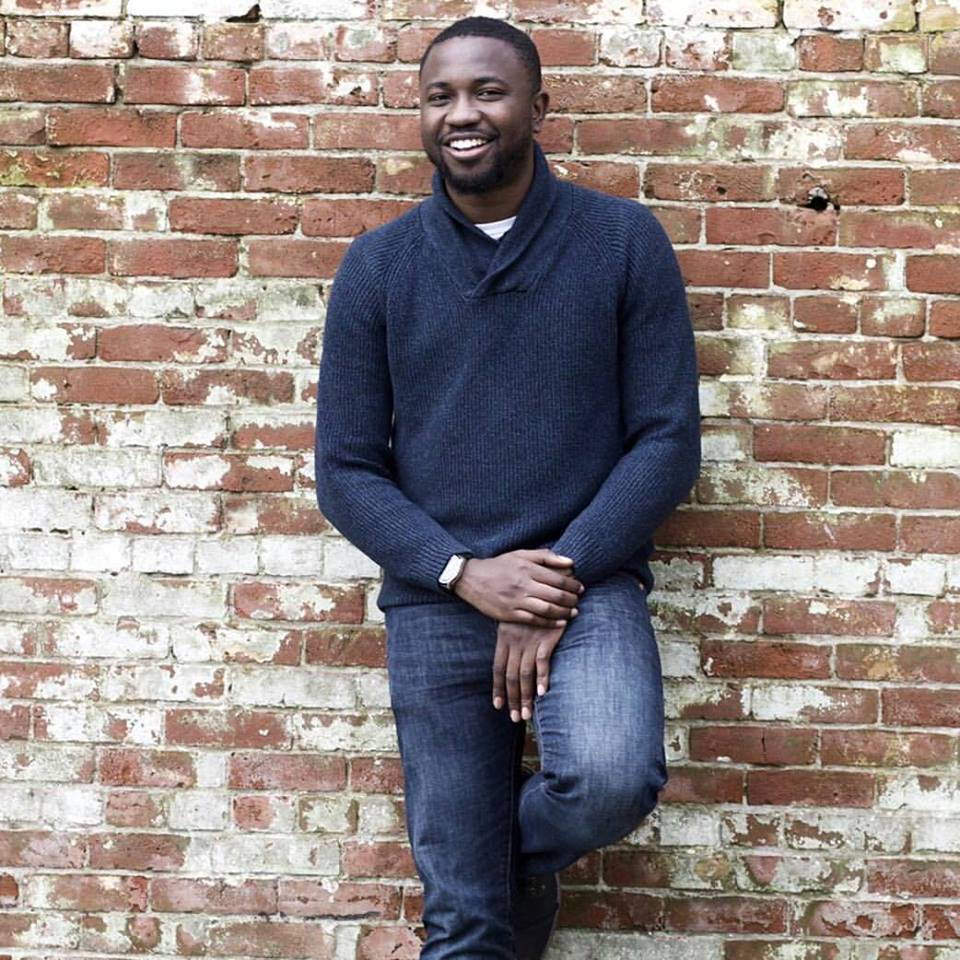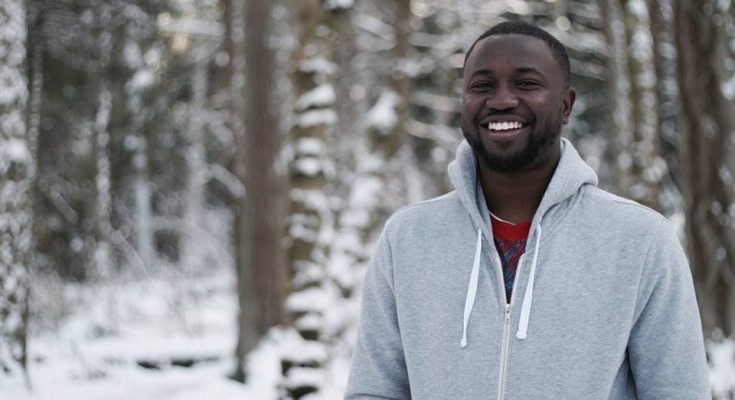
.
.
I have been away from Nigeria since 2013 and whew! It has been quite an experience being away from home. First, let me say that I had no problem with my transitioning – the change of environment was not so much trouble for me.
.
.
The first culture shock I had when I got to Canada in 2014 was definitely the openness of sex and sexuality on campus. My school SUG organized a public lecture on rough sex – the intention was to teach students how they can safely engage in rough sex and also enjoy pleasure while at it. They invited a Sadomasochism expert to come deliver the lecture. There were sign boards, posters and fliers all over the school inviting people to come and learn how to have rough sex. And then there were condom dispensaries all over the place. Me, coming from Nigeria, I was just like ‘what kind of rubbish is this?!’
.
.
Another culture shock I experienced was realizing that we (Nigerians) are loud when we talk. Whenever I and other Nigerians gather and we are talking, all the oyinbo people will be glancing and staring at us; some will even call out and say “Errm, can you lower your voice?” Because we really don’t actually realize how loud we are, we would be looking at them like, ‘helloooo, aunty, can you mind your business!’
.
.
Here in Canada, work often starts at 9am and not 8am as it is the case in Nigeria. The thing is many offices have flexible opening and closing hours and so long you clock in the number of hours you’re meant to per day. The people who resume here at 8am choose to so that they can close an hour earlier. At my last place of work, opening hours was between 8am-10am, so you choose which hour you want to resume – 8am, 9am or 10am. So yeah, work life in Canada may look favourable and all but then, there are trade offs.
.
.
Canada is a debt-based society. It pays you to be in debt in Canada than to be without debt. This was something I had to learn when I got here because it was counterintuitive. There’s something called a credit score – everyone has it. Your credit score tells people how reliable you are in meeting your financial obligations.
.
.
Nobody pays for anything in cash here in Canada; if you need something you go to the store, pick it up pay a small down payment and then the rest of the payment is spread monthly based on the agreed payment plan. That’s why once you have a good job in Canada you can buy a house, a car, anything you want as long as you can properly structure the payment.
.
.
Now a Nigerian arrives here, gets excited that he can buy anything and just begins to pick and pick . That puts them in debt already, then they pay rent, pay for utilities and so by the time all these monthly deductions are made, they have no cash in hand for the rest of the month and so they start all over again, purchasing things on credit.
.
.
I have a friend who arrived, went ahead and bought 3 cars, now he is in so much debt. That’s why people work multiple jobs, just so as to cover the huge debts they have and so their credit score can improve. When you arrive, you are advised to apply for a credit card and your credit card has a spending limit; so your credit card may have a limit of, say $10,000. The $10,000 is not yours really but it is yours to spend. Then you pay it back.
.
.
When I first got here, I didn’t know debt was an advantage and so I didn’t buy anything on credit. I had my credit card but I always felt ‘why will I use my credit card when I have my own money?’ so I never used my credit card. The consequence of that was that my credit score was very low. Then I realized that everything you do in Canada revolves around your credit score.
.
.
With a low credit score, no one would trust that you can pay your rent or that you can pay for a device that you need so urgently.
.
.

.
.
“In the course of my stay here, I have had some experiences I’d never have had if I hadn’t left Nigeria. Some of these experiences are daring and in the end I find myself praying and asking myself pe ta lo gbe’se ran mi. If I am being honest with you, I have found myself in the ‘who-sent-me-work’ situation a lot of times since I got to Canada.
.
.
Sometimes I’d have got started on an adventure and midway I’d just ask myself: ‘who sent me work?!’ I’d keep wondering how it would be explained to people if I died that excitement pushed me to do the kind of scary activities I get myself into. Let me share a few with you
.
.
Okay, so my class decided to go skiing at the Marlboro mountains. In Nigeria, I had learnt how to balance myself and glide on the roller-skates; so I felt that I had had sufficient experience in gliding, enough to see me through the skiing outing. When we got there, there was a part that was for beginners and people who were not exactly professionals at skiing.
.
.
I stayed in the part for the beginners and I was doing very well while my other Nigerian friends were just somersaulting anyhow and falling down. I really felt good with myself. That was how one of those oyinbos just came over to me and asked me to come over to the mountain where the professionals were. Me, I thought I’d just climb the mountain and glide all the way down, simple and easy so I accepted the invitation; ashey I was wrong.
.
.
It turned out that when you get to the top of the mountain you’d have to turn all the way round to come back down and that’s like being upside down! Then there was a point I was skiing down the mountain and then I was supposed to make a sharp turn and then suddenly, I couldn’t remember how to turn again. The thing is, to make a turn, you need to move to the edge and then cut your angle. I got to that edge and it felt like I was going to fall off the cliff.
.
.
As I was going down, there was only one thing on my mind: ‘who sent me work – ta lo gbe’se ran mi’ I was looking at the edge, thinking of how I’d fall to my death, I just found a tree branch and quickly grabbed it for support and to stop me from going further. That was one experience I would never have had if I was in Nigeria. But today, I can ski from the mountain – in fact the last time I did, I didn’t even fall down at all.
.
.
Let me tell you about my trip to the Myra Canyon Park. So, I moved to British Colombia, which is one of the least diverse places in Canada and so most of my friends were oyinbo people. That implied that most of the activities I indulged in were oyinbo activities. Now there are these two mountains that are joined together by a railway track. There’s nothing to hold on to as you walk on the train track from one mountain to the other. From the top you can see rushing rapids kilometers below.
.
.
My girlfriend at the time convinced me to come along and so I did o. As I got on the train track like this, my eyes caught the view below. I was just like “OMG, I am going to die.” Then the cold wind began to blow and it felt like it was going to blow me off the train track and there was nothing to hold to support me. I was so afraid, I was like “Jesus if I don’t fall this time, I will never do this again!
.
.
You will think that I’d have learned my lesson abi? You’re wrong. Let me tell you about Mexico…”
.
.

.
.
Before I tell you about Mexico, there was another who-send-me moment I had when I went bungee jumping. This is how bungee jumping works: a long nylon-cased rubber strap will be put around your ankles and then from a verrrryyyyy high place you will be tossed down and as you go down from that height you’d be dangling; the only thing that will save you from crashing to your death is the rubber strap on your ankle from which you’re dangling from. Usually, it is oyinbos that do these daring things.
.
.
One day, my friends and I, all blacks, decided to go to the bungee jumping spot – we clearly had no intention to participate. Then I saw these two fine girls on the line and I began to say to myself, ‘mehn I can do this thing o’. My friends told me to kill the thought and that we should go back home but because of the fine girls I insisted that I could do it.
.
.
I joined the girls on the queue and began to chat with them. The girls told me they were scared and I spoke very confidently like I had done it a million times. Then, they requested to be strapped to me since I was the confident one and they were the ones afraid. I said no problem. In the end, as they tossed us and we were crashing to the ground, held alive only by the rubber strap, I screamed louder than the two girls put together. As we went down I kept screaming, “help me! Help me!!!”
.
.
So Mexico – I went to Mexico for vacation with my cousin. We rented a jet ski and as we were launching out into the sea on which we intended to ride, we saw two fine girls. We asked them if they’d love to ride with us and they agreed. They hopped in and we headed out. I had jet skied before and so I was quite confident of my abilities. I rode on the waves into the ocean, showing off to impress the girls.
.
.
That’s how we rode far away into the sea and we crashed. The jet ski turned upside down and water began to fill it up. One of the girls was angry and was like, “I thought you said you could jet ski” I looked at her and replied, “ehn, did I not ride the jet ski to this point, abi?! After all, I only promised to give you a ride on the jet ski, I didn’t promise to get you back safe.”
.
.
In that moment, in my mind, I was praying that there shouldn’t be sharks nearby but because we were with fine girls, I had to put up a confident look as though I had no worries. See ehn, I have had plenty “who send me work” moments so let’s just stop here.
.
.
Living in Canada has its challenges. In Nigeria when something gets spoilt, you can easily fix it – we are used to that lifestyle already. In Canada, repairing anything does not make any sense whatsoever because the cost of fixing is sometimes about the same price for buying a new one.
.
.
My sister’s fridge got spoilt and the repairers charged $150/hour just to come in and examine the fridge o. That means that if they spent 4hours fixing it, then the cost of the repairs is enough to buy a new fridge. So here in Canada, we don’t repair, we just replace; and that’s why the orientation here is Do-It-Yourself. You must be able to do many things by yourself.
.
.
My cousin’s tap was malfunctioning and I suggested calling a plumber to come fix it and she retorted, ‘Call someone bawo?!’ Immediately she got under the sink, loosened the pipes and she fixed the problem. I was even ashamed of my manliness because a whole man like me couldn’t fix the plumbing.
.
.
Blue collar labour is very expensive here but then, there are ways around it too because there are immigrants who will take whatever they can just to make a quick buck.
.
.
Sometime ago, somebody hit my bumper and there was a small crack – the crack was something that, in Nigeria, a panel beater will sharply fix for N1500; they asked me to pay $1800 to replace the new bumper because they have to ship in a new bumper. I was like, “Oga, shey you don’t have small gum that you can use to just gum this bumper together ni?”
.
.
I ended up calling my friend, Ikenna, a guy who’s so popular around here – he always knows someone that knows someone that can sort you out. He took me to a shop like that and in the end, I fixed the bumper for $100.
.
.
Another time, I bought a brand new 60-inch TV. My cousin and I were trying to lift it and get it into the house, there was miscommunication and we both let go of the TV at the same time. It felt to the ground and the screen broke. The sad part of it was that I did not take out a warranty on the TV. The cost of fixing that screen was about the same price as buying a new one so I just bought new one instead.
.
.

.
.
One of the biggest challenges of living in Canada is loneliness. Oyinbo people are not like us Africans that we bond with one another and are involved in one another’s’ lives. Here people keep to themselves, you can’t just go visiting someone simply because you feel so, you can’t just bump into your neighbour’s house and say go and serve me rice. For you to get rid of the loneliness, you need to be deliberate about going out and interacting with people outside of your group.
.
.
The second challenge then flows from the first one – many Nigerians who move to Canada tend to just suck themselves into the Naija community in whatever province they find themselves. In the end, they have Nigerian friends, and have no friends outside the Naija community. This leaves many Nigerians at a disadvantage because they are unable to exploit the opportunities that making friends with other nationalities offer. So people who don’t explore outside of their circles will not tap into benefits the other circles in Canada have to offer.
.
.
Raising black children in Canada is worse than in the US because there is no black community here. In the US, there are black Americans, they have a sense of community and identity, they have shared experiences that bind them together; but here there is nothing like that. So, black children raised in Canada tend to have identity crisis. They spend their whole lives around oyinbos and so you see them trying to be like oyinbos but really, they are not.
.
.
Another challenge living in Canada is the cold. Depending on where you are, the winters can be hell. There was time Winnipeg was colder than the north pole. Like, you carry a bottle of water, step out of your house and the water freezes. That kind of cold just doesn’t make sense. My coldest winter was in Alberta and it was -45 degrees . I had just landed at the airport and then this white guy raised a false alarm that there was a bomb in the airport, so we were evacuated outside.
.
.
There’s something call wind-chills – it’s like being in the freezer and someone is now blowing fan on you again. During wind-chills, the tips of your ears freeze, your fingers get numb and if you stare at the snow for too long your eyes will get teary. So we were outside and we were experiencing wind-chill. British Columbia doesn’t get as cold as other parts of Canada; in fact sometimes it doesn’t snow in BC.
.
.
Advice for intending travelers?
.
.
Life in Canada is totally different from life in Nigeria and I feel many don’t get tutorials before coming over here and so they learn the hard way. I always like to advice that it pays to come over to Canada through schooling first rather than the PR option. Schooling gives you a buffer in the sense that is shields you from the strain of the work-life realities in Canada and while, at the same time, offers you a chance to catch up on how things work over here.
.
.
Those who come in through PR tend to learn in hard ways because there’s no opportunity for them to properly understand the system before integrating into it. This is my personal opinion though.
.
.
If you are coming to Canada, write as many professional exams as possible. Truth is, your first job is the hardest to get. The challenge is that many employers don’t understand how translatable our skills are and they are always afraid to take a chance on us. If a James sends a resume and a Sola sends a resume – both having the same qualifications – the James would likely get the job than the Sola because they have a preconceived notion that the James is familiar with their system already and can give value to the organization than a Sola. However if you walk in into the organization and you can secure a one-on-one with HR or the employer himself, they usually get impressed by how smart and brilliant we are.
.
.
Above all, networking is key in Canada. Knowing someone makes life a whole lot easier for you. A phone call from someone who knows you could get you so much than you could get if you were just pushing alone all by yourself. I got two high paying jobs without sending a resume just because I knew people who knew me and my competence could put my name down for the jobs.
.
.
(Ontario, Canada)





